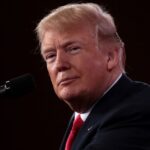


TikTok and its parent company, ByteDance, are ramping up their legal strategies by hiring a distinguished lawyer with significant experience before the U.S. Supreme Court to contest a law that threatens to ban the popular social media app in the United States.
With growing national security anxieties, the Biden administration has mandated ByteDance to divest TikTok by January 19, 2025, or risk a nationwide suspension of the app.
To spearhead this crucial legal battle, TikTok and ByteDance have brought on Noel Francisco, a veteran Supreme Court advocate, to help block the impending legislation according to US News.
Francisco, along with his colleague Hashim Mooppan, will represent TikTok through the law firm Jones Day. This legal team aims to challenge the legislative measures designed to sever TikTok's ties with its Chinese parent company.
Lawmakers in the United States have expressed persistent concerns regarding TikTok's data security practices, fearing that the Chinese government might access sensitive user data.
These concerns revolve around the app's potential obligation to the Chinese government, which TikTok firmly denies. The app claims no such data-sharing commitment exists.
The apprehension over TikTok has led to the legislative action requiring its divestment. President Joe Biden signed the law in April, echoing national security risks associated with the platform's connection to ByteDance. The law sets a deadline for divestment, emphasizing the urgency of addressing these fears.
Amidst these developments, the U.S. Court of Appeals for the D.C. Circuit upheld the constitutionality of this law. This decision prompted ByteDance to seek a stay in the legislation pending the Supreme Court's review, setting the stage for a potentially landmark legal battle.
Noel Francisco brings a wealth of experience to TikTok's defense, having previously served as the United States' top Supreme Court lawyer from 2017 to 2020.
During his tenure, he defended several notable cases, including President Donald Trump's controversial travel ban affecting six predominantly Muslim countries. Francisco's track record, which includes over 20 arguments before the Supreme Court, positions him as a strategic ally for ByteDance and TikTok.
Interestingly, Francisco is not new to high-profile legal defenses. His current roster of clients includes major U.S. gun manufacturers involved in a litigation case initiated by Mexico. This highlights his role in defending significant entities in contentious legal arenas.
The choice of Jones Day, a firm with strong connections to Trump’s 2016 presidential campaign, underscores the political and legal complexity of TikTok's situation in the United States. Many of Jones Day's lawyers assumed prominent government roles during Trump's first term, further intertwining the firm's legacy with major politico-legal narratives.
This legal maneuver by TikTok comes amid President Joe Biden's administration enforcing a pivotal law demanding ByteDance's divestment from the social media giant by January 2025. The rationale behind this legislative move underscores a mounting bipartisan concern regarding national security implications.
Proponents of the law argue that the vast trove of data from TikTok's estimated 170 million monthly users poses significant risks if accessed by foreign entities. These suspicions, despite TikTok's denials, drive the legislative pressure that has culminated in the divestment deadline.
In contrast, former President Donald Trump has publicly stated his opposition to an outright ban on TikTok, adding a layer of political complexity to the unfolding legal discourse. His stance suggests potential political dimensions that may impact future proceedings.
The case's advancement to the Supreme Court highlights its potential to set precedence in the intersection of national security, privacy, and corporate regulation. The Supreme Court's decisions in such cases often create ripples across not only legal regimes but also across geopolitical frameworks.



